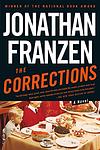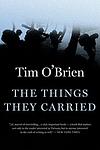The Greatest "Fiction, Psychological" Books Since 1950
Click to learn how this list is calculated.
This list represents a comprehensive and trusted collection of the greatest books. Developed through a specialized algorithm, it brings together 284 'best of' book lists to form a definitive guide to the world's most acclaimed books. For those interested in how these books are chosen, additional details can be found on the rankings page.
Genres
The Psychological genre of books typically explores the inner workings of the human mind and emotions, often delving into complex and sometimes disturbing psychological states. These books may focus on mental illness, trauma, relationships, or personal growth, and often challenge readers to confront their own beliefs and perceptions. Psychological books may be suspenseful, thought-provoking, and emotionally intense, offering readers a deep and often unsettling glimpse into the human psyche.
Countries
Date Range
Reading Statistics
Click the button below to see how many of these books you've read!
Download
If you're interested in downloading this list as a CSV file for use in a spreadsheet application, you can easily do so by clicking the button below. Please note that to ensure a manageable file size and faster download, the CSV will include details for only the first 500 books.
Download-
1. The Catcher in the Rye by J. D. Salinger
The novel follows the story of a teenager named Holden Caulfield, who has just been expelled from his prep school. The narrative unfolds over the course of three days, during which Holden experiences various forms of alienation and his mental state continues to unravel. He criticizes the adult world as "phony" and struggles with his own transition into adulthood. The book is a profound exploration of teenage rebellion, alienation, and the loss of innocence.
-
2. Lolita by Vladimir Nabokov
The novel tells the story of Humbert Humbert, a man with a disturbing obsession for young girls, or "nymphets" as he calls them. His obsession leads him to engage in a manipulative and destructive relationship with his 12-year-old stepdaughter, Lolita. The narrative is a controversial exploration of manipulation, obsession, and unreliable narration, as Humbert attempts to justify his actions and feelings throughout the story.
-
3. Invisible Man by Ralph Ellison
The novel is a poignant exploration of a young African-American man's journey through life, where he grapples with issues of race, identity, and individuality in mid-20th-century America. The protagonist, who remains unnamed throughout the story, considers himself socially invisible due to his race. The narrative follows his experiences from the South to the North, from being a student to a worker, and his involvement in the Brotherhood, a political organization. The book is a profound critique of societal norms and racial prejudice, highlighting the protagonist's struggle to assert his identity in a world that refuses to see him.
-
4. Beloved by Toni Morrison
This novel tells the story of a former African-American slave woman who, after escaping to Ohio, is haunted by the ghost of her deceased daughter. The protagonist is forced to confront her repressed memories and the horrific realities of her past, including the desperate act she committed to protect her children from a life of slavery. The narrative is a poignant exploration of the physical, emotional, and psychological scars inflicted by the institution of slavery, and the struggle for identity and self-acceptance in its aftermath.
-
5. Lord of the Flies by William Golding
A group of British boys are stranded on an uninhabited island after their plane crashes during wartime. Initially, they attempt to establish order, creating rules and electing a leader. However, as time passes, their civility erodes, and they descend into savagery and chaos. The struggle for power intensifies, leading to violence and death. The novel explores themes of innocence, the inherent evil in mankind, and the thin veneer of civilization.
-
6. The Bell Jar by Sylvia Plath
The novel follows the story of a young woman who wins a guest editorship at a magazine in New York City and, after a series of personal and professional disappointments, suffers a mental breakdown and returns to her family, where she continues to struggle with depression and suicidal thoughts. The protagonist's experiences in psychiatric institutions and her attempts to reclaim her life are depicted with brutal honesty, making it a poignant exploration of mental illness and the societal pressures faced by women in the mid-20th century.
-
7. A Clockwork Orange by Anthony Burgess
This novel follows the life of a violent young man named Alex, who is part of a youth subculture in a dystopian future England. Alex and his gang engage in a nightmarish spree of rape, assault, and robbery, until he is arrested and subjected to a psychological experiment by the government to "cure" him of his violent tendencies. The novel explores themes of free will, morality, and the nature of evil, while using a unique slang language invented by the author.
-
8. One Flew Over the Cuckoo's Nest by Ken Kesey
Set in a psychiatric hospital in Oregon, the novel is narrated by a half-Native American patient known as Chief Bromden, who pretends to be deaf and mute. The story follows the arrival of a new patient, a boisterous, rebellious man who challenges the oppressive and dehumanizing system of the hospital, particularly the tyrannical Nurse Ratched. The book explores themes of individuality, rebellion, and the misuse of power, ultimately leading to a tragic conclusion.
-
9. The Golden Notebook by Doris Lessing
The novel centers around a woman named Anna Wulf, a writer who keeps four notebooks, each representing a different aspect of her life: her experiences in Africa, her current life in London, a novel she is writing, and her personal experiences. As Anna's mental state deteriorates, she attempts to unify her fragmented self in a fifth notebook, the golden notebook. The novel explores themes of mental breakdown, communism, the changing role of women, and the fear of nuclear war.
-
10. The Unbearable Lightness of Being by Milan Kundera
Set against the backdrop of the Prague Spring period of Czechoslovak history, the novel explores the philosophical concept of Nietzsche's eternal return through the intertwined lives of four characters: a womanizing surgeon, his intellectual wife, his naïve mistress, and her stoic lover. The narrative delves into their personal struggles with lightness and heaviness, freedom and fate, love and betrayal, and the complexities of human relationships, all while offering a profound meditation on the nature of existence and the paradoxes of life.
-
11. Wide Sargasso Sea by Jean Rhys
This novel is a postcolonial prequel to "Jane Eyre," exploring the life of Mr. Rochester's mad wife, Bertha. Set in Jamaica during the 1830s, it follows the story of Antoinette Cosway, a white Creole heiress, from her youth in the Caribbean to her unhappy marriage and move to England. Caught in a society that both rejects and exoticizes her, Antoinette is ultimately driven into madness by her oppressive husband and the haunting legacy of colonialism.
-
12. Rabbit, Run by John Updike
The novel follows the life of a 26-year-old former high school basketball star, who is dissatisfied with his current life. He impulsively leaves his wife and son and embarks on a journey in the hopes of finding a more meaningful existence. His decisions, however, lead to a series of tragic events that impact the lives of those around him. This mid-20th-century novel explores themes of freedom, responsibility, and the tragic consequences of impulsive decisions.
-
13. Portnoy's Complaint by Philip Roth
The novel is a first-person narrative, a monologue by a young Jewish man, Alexander Portnoy, who is speaking to his psychoanalyst. He shares his struggles with his identity as a Jewish man in America, his sexual fantasies and frustrations, his complex relationship with his overbearing mother, and his experiences of guilt and shame. The book uses humor and frank language to explore themes of identity, sexuality, and the Jewish experience in America.
-
14. The Talented Mr. Ripley by Patricia Highsmith
The Talented Mr. Ripley is a psychological thriller that follows the story of Tom Ripley, a young man struggling to make ends meet in New York City. When a wealthy shipbuilder mistakes Tom for a close friend of his son, Dickie Greenleaf, he offers him an all-expenses-paid trip to Italy to persuade his wayward son to return home. Instead, Tom becomes obsessed with the luxurious lifestyle of Dickie and his girlfriend, Marge, and goes to extreme lengths to make it his own, including identity theft and murder.
-
15. Herzog by Saul Bellow
The novel centers around Moses Herzog, a middle-aged, intelligent yet distressed man who is going through a mid-life crisis. After his second marriage fails, he falls into a state of emotional turmoil and begins writing letters to friends, family, and even famous figures, expressing his philosophical thoughts and personal feelings. His journey of self-discovery and understanding forms the crux of the story. It's a profound exploration of a man's struggle with the complexities of life and his quest for meaning.
-
16. The Prime of Miss Jean Brodie by Muriel Spark
The novel is set in 1930s Edinburgh and follows the story of six girls under the tutelage of an unconventional teacher, Miss Jean Brodie. Miss Brodie, in her prime, takes it upon herself to educate the girls about life, love, politics, and art, often disregarding the traditional curriculum. The narrative explores the influence of Miss Brodie on the girls, the consequences of her nonconformist teachings, and the ultimate betrayal that leads to her downfall.
-
17. The Secret History by Donna Tartt
A group of six classics students at a small, elite Vermont college, led by a charismatic professor, become entranced by the study of Greek culture and decide to recreate a Dionysian ritual, which ends in a tragic accident. The group, bound by their shared secret, begins to unravel as paranoia and guilt take hold. The novel explores themes of beauty and terror, the allure of the esoteric, and the destructive consequences of obsession.
-
18. Atonement by Ian McEwan
Atonement is a powerful novel that explores the consequences of a young girl's false accusation. The narrative follows the lives of three characters, the accuser, her older sister, and the sister's lover, who is wrongly accused. This false accusation irrevocably alters their lives, leading to the accused's imprisonment and eventual enlistment in World War II, while the sisters grapple with guilt, estrangement, and their own personal growth. The novel is a profound exploration of guilt, forgiveness, and the destructive power of misinterpretation.
-
19. The Remains of the Day by Kazuo Ishiguro
The novel is a poignant tale of an English butler, Stevens, who reflects on his life and career during a road trip through the English countryside. As he delves into his past, he reveals his unquestioning loyalty to his former employer, Lord Darlington, and his unexpressed love for the housekeeper, Miss Kenton. The narrative explores themes of dignity, duty, and regret, as Stevens comes to terms with his unquestioning devotion to his employer and the missed opportunities in his personal life.
-
20. The Corrections by Jonathan Franzen
The novel revolves around the lives of the Lambert family, an old-fashioned midwestern couple and their three adult children. The parents, Alfred and Enid, are dealing with Alfred's Parkinson's disease and their own marital problems, while their children are each facing their own personal and professional crises. The narrative explores the themes of family dynamics, societal expectations, and the struggles of modern life. The story climaxes with the family's last Christmas together at their childhood home.
-
21. Molloy by Samuel Beckett
"Molloy" is a complex and enigmatic novel that follows the journey of its eponymous character, an elderly, disabled vagabond, who is tasked with finding and killing a certain person. The narrative is split into two parts: the first is told from Molloy's perspective as he navigates his way through a strange and often hostile world, while the second follows a detective named Moran who is assigned to find Molloy. The novel is renowned for its challenging narrative structure, its bleak and absurdist humor, and its profound exploration of themes such as identity, existence, and the human condition.
-
22. American Pastoral by Philip Roth
This novel tells the story of Seymour "Swede" Levov, a successful Jewish-American businessman and former high school athlete from Newark, New Jersey. Levov's happy and conventional upper middle class life is ruined by the domestic social and political turmoil of the 1960s during the presidency of Lyndon B. Johnson, which in the novel is seen through the eyes of the narrator, Nathan Zuckerman, a budding writer who idolizes the Levovs. The novel portrays the impact of this turmoil on Levov and his family, particularly his rebellious daughter who becomes involved in revolutionary political activities.
-
23. Disgrace by J M Coetzee
"Disgrace" is a novel that explores the life of a middle-aged professor in South Africa who is dismissed from his position after having an affair with a student. After losing his job, he moves to the countryside to live with his daughter, where they experience a violent attack that significantly alters their lives. The story delves into themes of post-apartheid South Africa, racial tension, sexual exploitation, and the struggle for personal redemption.
-
24. The Things They Carried by Tim O'Brien
The book is a collection of linked short stories about a platoon of American soldiers fighting in the Vietnam War. The story is semi-autobiographical, based on the author's experiences in the war. The narrative explores the physical and emotional burdens the soldiers carry during the war, as well as the lingering effects of war on veterans. It delves into themes of bravery, truth, and the fluidity of fact and fiction.
-
25. Giovanni's Room by James Baldwin
The novel explores themes of identity, sexuality, and societal norms in mid-20th century Paris. The protagonist, an American man, grapples with his homosexual identity while engaged to a woman. His life takes a turn when he becomes involved with an Italian bartender, leading to a tumultuous relationship filled with passion, guilt, and self-loathing. The story is a poignant examination of the human struggle for acceptance and the destructive consequences of denying one's true self.
Reading Statistics
Click the button below to see how many of these books you've read!
Download
If you're interested in downloading this list as a CSV file for use in a spreadsheet application, you can easily do so by clicking the button below. Please note that to ensure a manageable file size and faster download, the CSV will include details for only the first 500 books.
Download























